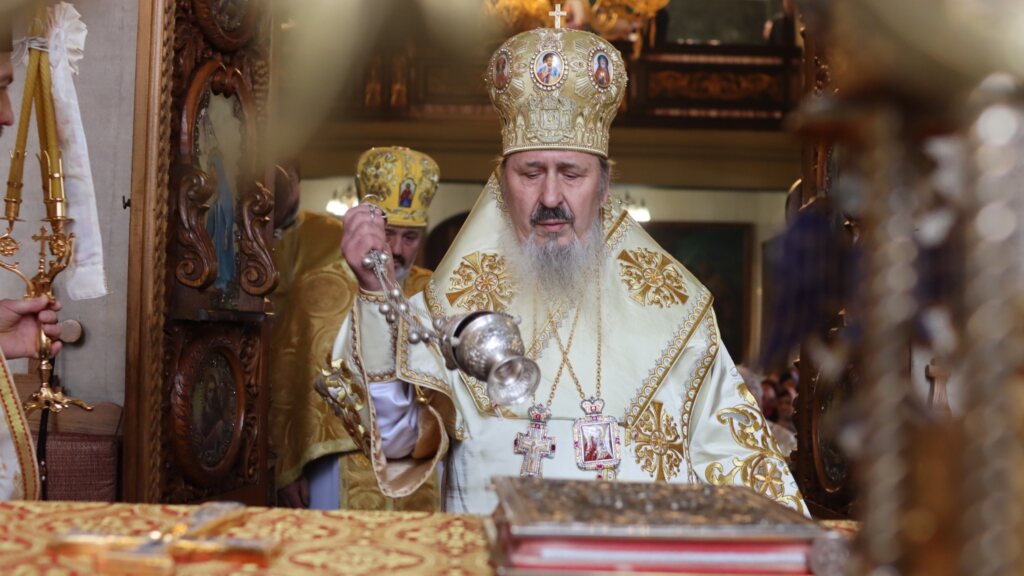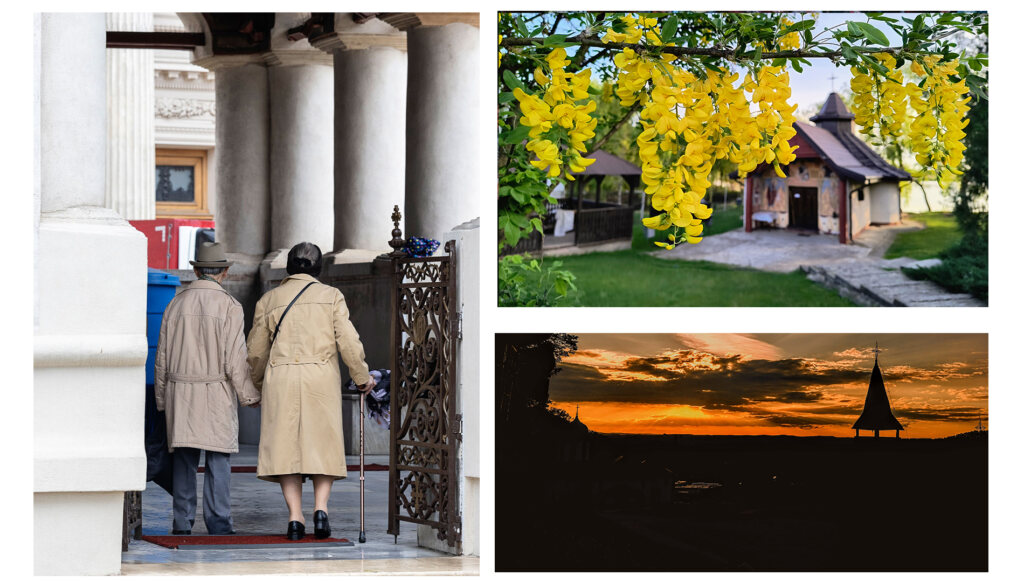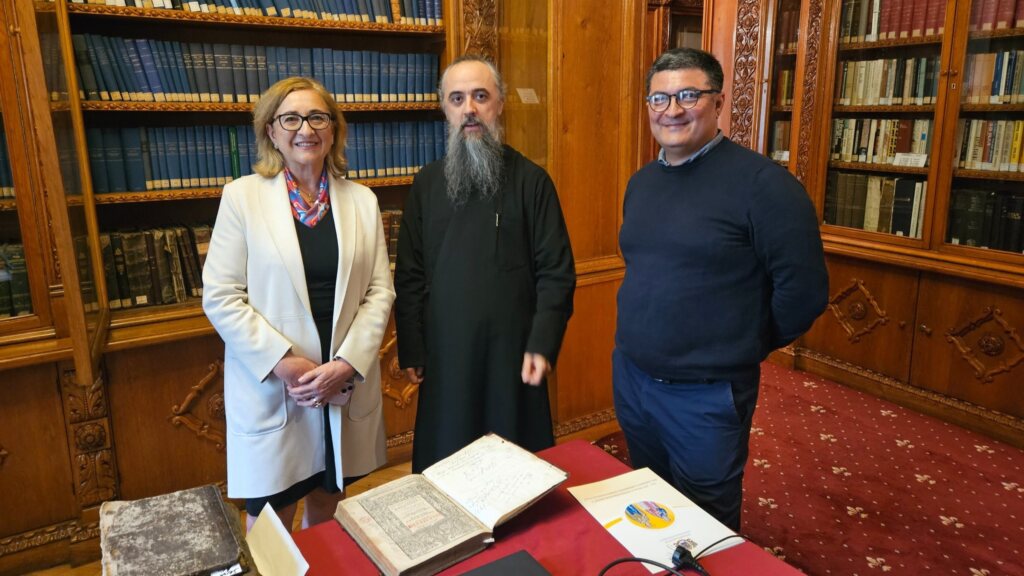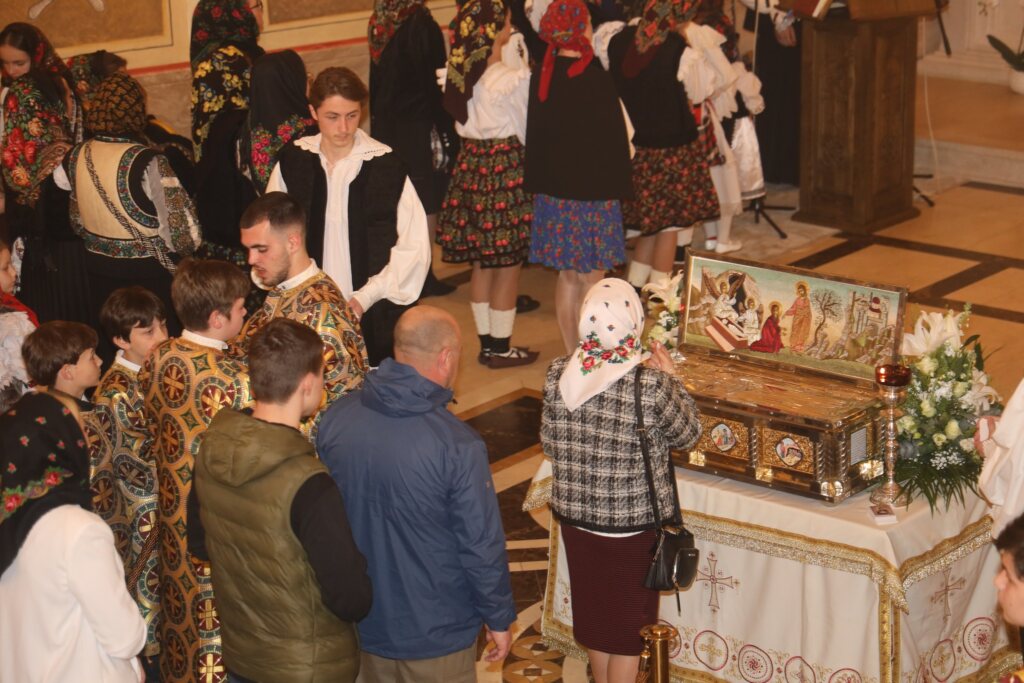In the sermon delivered on 17 November 2013,in the chapel of “St. Gregory the Illuminator” at the Patriarchal Residence, His Beatitude Daniel, Patriarch of the Romanian Orthodox Church, explained the significance of the Gospel text of the 16thSunday after Pentecost,from St. Luke the Evangelist, chapter 12, verses 16-21, in which the Parable of the rich man whose land yielded an abundant harvest is presented.
This rich man is someone in front of whom God put an unexpected situation to check how he behaves. His Beatitude showed that the large surplus of harvest was not the result of the rich man’s work, but it was an unexpected gift from God, and precisely in front of this great gift of God, the rich man did not look with gratitude and thanksgiving, but his greed grow even more: “We see in the attitude of a rich man whose land yielded an abundant harvest enslavement of his soul for material things and says to himself: Now my soul you have plenty of grain laid up for many years. Take life easy; eat, drink and be merry. But suddenly a voice tells him:You fool! This very night your life will be demanded from you. Then who will get what you have prepared for yourself?The text of the Gospel ends with these words: This is how it will be with whoever stores up things for themselves but is not rich in God.
The Romanian Patriarch spoke also about the spiritual meanings of wealth and how it can bring us closer or away from God and from our neighbours: “The Parable of the rich man whose land yielded an abundant harvestshows that us many spiritual meanings helping us to have a right understanding of wealth. Wealth is a gift from God. It is not bad. Poverty and wealth in the Scriptures are not an end in itself, but the way we use wealth and live poverty can bring us closer to God or away from God. Both can bring us closer to God and our neighbours or to estrange from them. When wealth becomes a source of mercy, kindness, sincere and sacrificial love, it becomes a means of glorifying God the One Rich in mercy that through the incarnation of His Son, as St. Paul tells us in the Epistle to Ephesians, wanted to show in the ages to come the overwhelming riches of His grace. In many ways God shows the overwhelming richness of His merciful love. When someone becomes rich by God’s mercy it is a chance to show the richness of the soul as gracious love or this wealth becomes an obstacle to salvation by refusing to share to the needy goods received from God”.
His Beatitude underlined that enrichment in God is the calling that the Gospel addressed to us especially in this period of fasting: “We see in the text that the chance to respond to God’s mercy towards people was missed. Therefore, the text concludes: So it happens to the one who becomes richer materially in this world, but not rich in God. Enrichment in God is another kind than being rich by collection of material around us. This means a spiritual enrichment through the merciful love of God who pours over the human soul when required by prayer and nurtured by good deeds. This is the great richness: the presence of the merciful love of God in the faithful, prayerful, thankful or grateful and gracious human soul”.
“The text shows that if material wealth is not used to enrich us spiritually with merciful love it becomes a hindrance to salvation. But if wealth is transformed into kindness shown to those around us who need our help then it becomes a blessing”, said His Beatitude.
At the end of his speech, the Patriarch of Romania showed that in every church in the Romanian Patriarchate a collection to help those in distress and the elderly sick was held today: “This text of the Gospel in the first Sunday of Nativity Lent is in full accord with the exhortation the Holy Synod of the Romanian Orthodox Church makes towards all the clergy and faithful of the Romanian Patriarchate namely following the example of Saints Constantine and Helen who were supporters of the Church, founders of churches and very merciful, by becoming now followers of their example with all saints pleasing to God. Therefore, at the end of the Holy Synod’sPastoral letter that is read today, the first Sunday of Advent, it is said: (…) we urge you to organize in the parish churches, deaneries and diocesan centres collections of money, food, clothes and medicines to be distributed to all the suffering and disadvantaged, poor families with many children, single people without children or relatives, so that “your plenty will supply what they need” (2 Corinthians 8:14). We pray God for all those who love and help the Church in her sanctifying and saving work, we appreciate and fatherly guide them that, following the model of Saints Constantine and Helen, who have so much helped build and equip churches with whatever it was needed, to express with strength, love and faithfulness their love towards God and to continue to help His Holy Church in carrying out the many activities that the Romanian Orthodox Christian communities need”.






